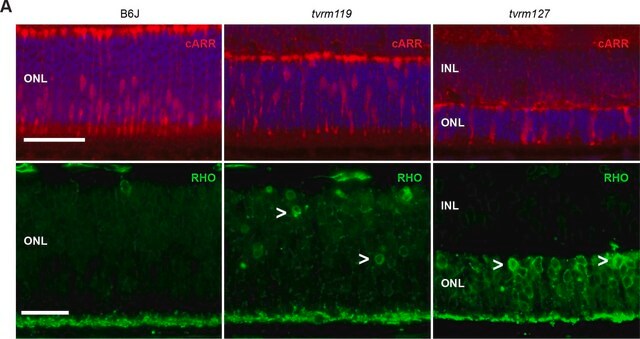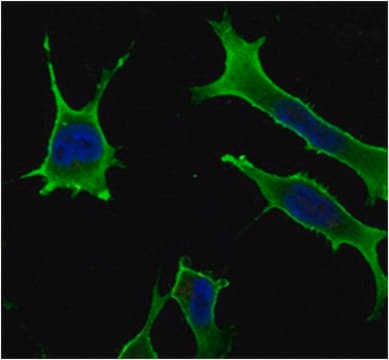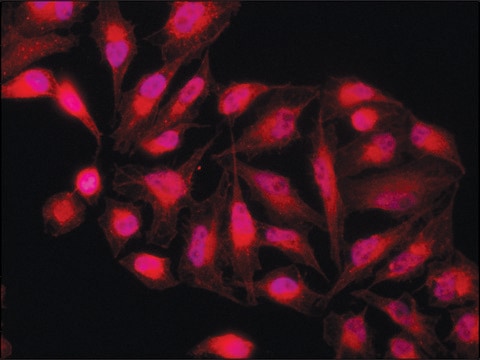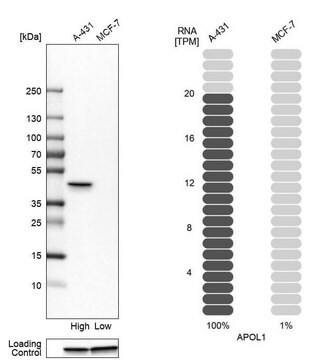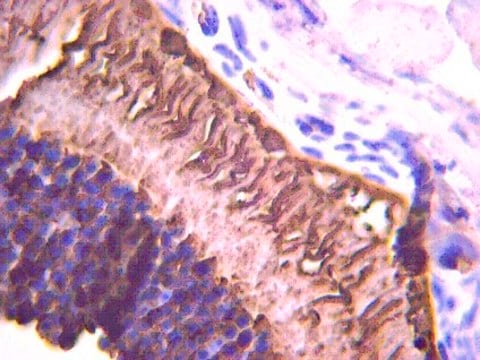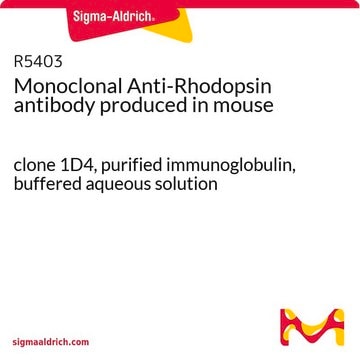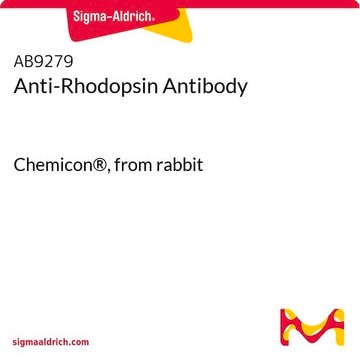MABS385
Anti-APOL1 Antibody, clone 1D4
ascites fluid, clone 1D4, from mouse
Sinónimos:
APOL, APO-L, APOL-I, Apolipoprotein L1, Apolipoprotein L, Apolipoprotein L-I
About This Item
Productos recomendados
biological source
mouse
Quality Level
antibody form
ascites fluid
antibody product type
primary antibodies
clone
1D4, monoclonal
species reactivity
human
technique(s)
western blot: suitable
isotype
IgG1
UniProt accession no.
shipped in
wet ice
target post-translational modification
unmodified
Gene Information
human ... APOL1(8542)
General description
Immunogen
Application
Quality
Western Blotting Analysis: A 1:500-2,000 dilution of this antibody detected APOL1 in human plasma.
Optimal working dilutions must be determined by end user.
Target description
Analysis Note
Human plasma lysate
¿No encuentra el producto adecuado?
Pruebe nuestro Herramienta de selección de productos.
Storage Class
12 - Non Combustible Liquids
wgk_germany
nwg
flash_point_f
Not applicable
flash_point_c
Not applicable
Certificados de análisis (COA)
Busque Certificados de análisis (COA) introduciendo el número de lote del producto. Los números de lote se encuentran en la etiqueta del producto después de las palabras «Lot» o «Batch»
¿Ya tiene este producto?
Encuentre la documentación para los productos que ha comprado recientemente en la Biblioteca de documentos.
Nuestro equipo de científicos tiene experiencia en todas las áreas de investigación: Ciencias de la vida, Ciencia de los materiales, Síntesis química, Cromatografía, Analítica y muchas otras.
Póngase en contacto con el Servicio técnico